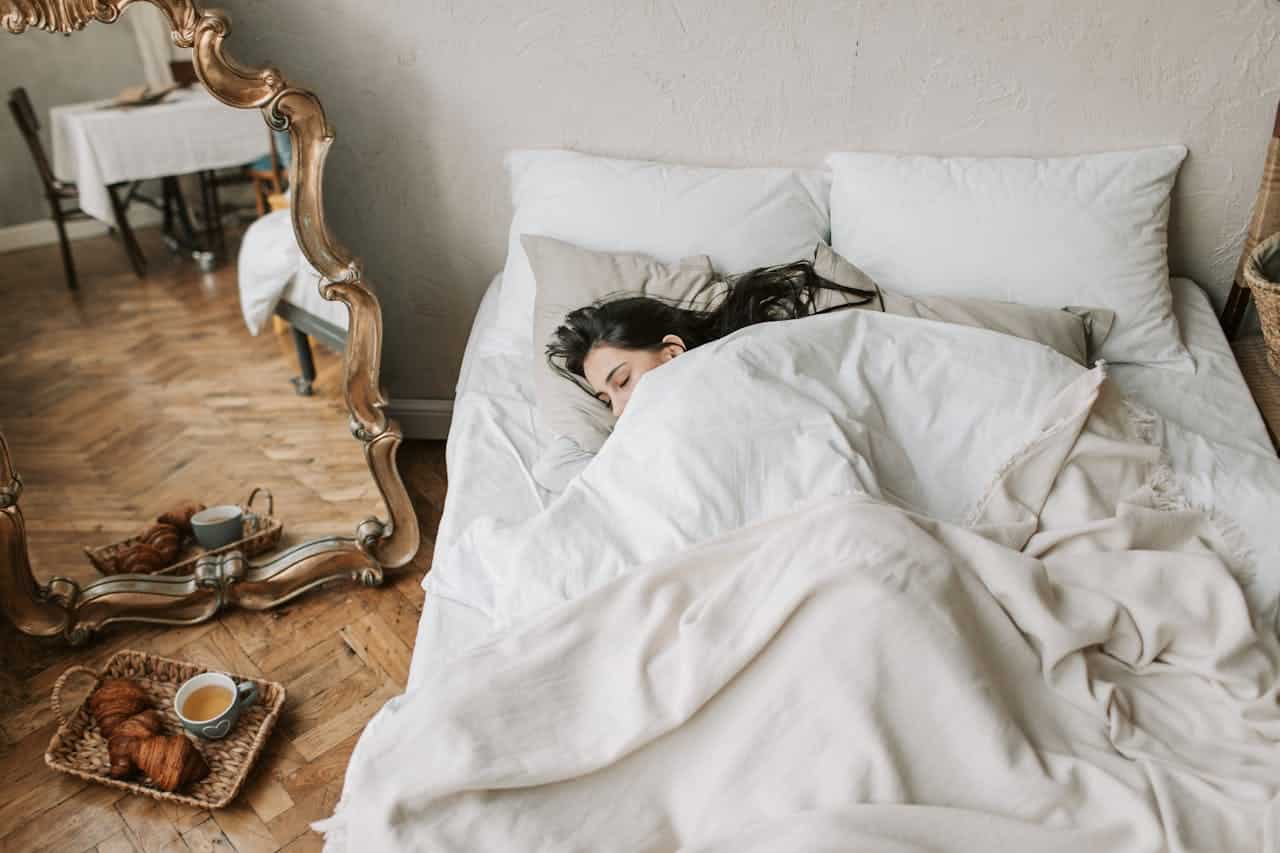Is sleeping in on Saturday actually good for your health? According to new research presented at the European Society of Cardiology Congress, the answer may be yes—especially for your heart.
This recent study analyzed nearly 91,000 adults from the UK Biobank and discovered a promising trend: people who made up for lost sleep on weekends had up to a 20% lower risk of developing heart disease compared to those who didn’t. The benefit was especially significant among individuals who routinely slept less than the recommended seven hours during the workweek.
So, is your weekend lie-in a form of self-care or just wishful thinking? Let’s explore what the science says.
How Sleep Debt Affects Your Heart
The concept of meritocracy—the belief that anyone can achieve success through hard work and dedication—has been deeply embedded in the cultural fabric of many Western societies, particularly in the United States. It’s a message we’ve seen in classrooms, popular media, and political rhetoric: effort equals opportunity. But increasingly, this promise is wearing thin.
A 2023 international survey conducted by the OECD revealed that a majority of people across 27 countries no longer believe that hard work is the main factor in getting ahead. Instead, respondents pointed to wealth, family background, and personal connections as the primary determinants of success. This perception is especially prominent among young people who are entering adulthood in the wake of economic crises, a changing job market, and widening wealth inequality.
Economic data adds weight to this shifting belief. In the U.S., the Federal Reserve’s 2023 report on household well-being found that nearly 40% of adults would have difficulty covering an unexpected $400 expense. This figure has persisted for years, pointing to systemic stagnation in financial security for working Americans. Meanwhile, in parts of Europe, particularly in France and Germany, youth unemployment remains stubbornly high despite rising education levels.
What we’re seeing is a growing disillusionment with the idea that effort alone can overcome structural disadvantages. Rising living costs, unaffordable housing, student debt, and fewer stable job opportunities have created a reality where many feel they are running on a treadmill—exerting energy, but never moving forward. This erosion of belief isn’t just about economics; it’s about identity, motivation, and trust in the social contract.
When young people feel that the rules have changed and the goalposts have shifted, it’s not just ambition that falters—it’s well-being. The consequences ripple out into mental health, physical health, and societal engagement. And unless addressed, this widespread skepticism may further deepen generational divides and weaken our collective sense of progress.
The Promise of Weekend Recovery Sleep
What makes the new research compelling is its suggestion that weekend recovery sleep might mitigate some of the damage caused by weekday sleep deprivation. Participants who were able to add a few extra hours of rest on their days off had measurably lower risk for cardiovascular disease.
This doesn’t mean you can erase a week of poor sleep with one long nap—but the data suggests that even partial compensation matters. In the UK Biobank study, individuals who reported extending their sleep duration on the weekends—especially those who routinely logged less than six hours on weekdays—experienced a significant reduction in their overall cardiovascular risk profile. That includes fewer incidents of hypertension, stroke, and coronary artery disease over time.

Other observational studies support that weekend recovery sleep may improve heart rate variability (HRV)—an important marker of autonomic nervous system balance—by providing the body a much-needed window for full physiological recalibration. These benefits are especially relevant for individuals who have demanding workweeks with limited opportunity for rest.
Of course, the benefits aren’t limitless. Researchers emphasize that while weekend sleep can help “buffer” the adverse effects of chronic deprivation, it does not restore full metabolic or hormonal balance. It is a tool, not a cure.
Experts caution that this doesn’t mean weekend sleeping should replace consistent sleep hygiene. Regularly falling short of the recommended 7–9 hours per night can still lead to long-term health risks.
“Weekend Warriors” vs. Sleep Consistency
Sleep researchers often refer to people who sleep in on weekends as “weekend warriors.” These individuals make up for weekday sleep deprivation with extended weekend rest, and while the effort is not without benefit, it’s not an ideal solution. Several studies suggest that “sleep bingeing” on weekends provides short-term relief from cognitive fatigue and mood disturbances but doesn’t fully reset disrupted metabolic or cardiovascular function.
A major issue with this pattern is its inconsistency. Our bodies are governed by circadian rhythms—biological clocks that regulate sleep-wake cycles, hormone secretion, and even core body temperature. Disrupting this rhythm by constantly shifting sleep schedules can result in a phenomenon known as “social jet lag.” This misalignment between your internal clock and your social obligations (like work or school) has been linked to increased risks of obesity, poor glycemic control, and mental health challenges.
People with irregular sleep schedules may also experience poorer sleep quality overall. Even if you’re logging more hours, erratic timing can reduce the proportion of deep and REM sleep—the most restorative stages. As a result, weekend warriors may wake up feeling groggy or unrested despite sleeping longer.
What sets consistent sleepers apart is the stability of their circadian cues. Waking and sleeping at regular times allows the body to anticipate and prepare for periods of activity and rest. This synchronization improves sleep efficiency, supports hormone regulation (like melatonin and cortisol), and strengthens cardiovascular and metabolic health over time.
So while catching up on sleep can serve as a short-term buffer, the best long-term strategy is to aim for regular sleep and wake times—even on weekends. Think of weekend recovery sleep as a seatbelt: it can reduce damage in a crash but won’t prevent the crash itself.
Why Americans Are So Sleep-Deprived
According to the CDC, about one-third of adults in the United States report sleeping less than 7 hours per night. But the reasons for this widespread sleep deficiency go beyond mere personal choice or bad habits.
First, the modern work culture often demands long hours, irregular shifts, or the expectation of being “always on”—especially with the rise of remote work and digital communication. For many, the boundaries between work and rest have blurred, leading to chronically delayed bedtimes and interrupted sleep cycles.
Second, digital devices have dramatically altered how we prepare for sleep. Exposure to artificial light—especially blue light from smartphones, tablets, and televisions—can suppress melatonin production, making it harder to fall asleep naturally. This creates a vicious cycle: we stay up later, sleep less deeply, and wake up less refreshed.

Stress and mental overload also play a major role. Whether from economic concerns, caregiving duties, or information fatigue from constant news and social media, many Americans carry mental tension into bed. This heightened arousal state interferes with the body’s ability to transition into deep, restorative sleep.
Lastly, unrecognized or untreated sleep disorders such as insomnia, restless leg syndrome, or obstructive sleep apnea are more common than many realize. Left unmanaged, these conditions silently chip away at sleep quality—even when time in bed seems adequate.
All of these factors converge into what experts now call a “sleep crisis”—one with ripple effects across heart health, immune resilience, mood regulation, and long-term vitality. Until sleep is treated as a biological necessity rather than a negotiable luxury, many Americans will continue to sacrifice their health for productivity.
My Personal RX on Getting Better Sleep for a Healthier Heart
Over the years, I’ve met countless patients who come in with fatigue, irritability, or high blood pressure—and often, poor sleep is the silent culprit. Good sleep is foundational to good health. If your weekday schedule leaves you exhausted and you rely on weekend lie-ins to cope, you’re not alone. But there are things you can do to improve both your nightly sleep and your long-term heart health.
Here are my top 10 practical tips:
- Stick to a Routine: Go to bed and wake up at the same time every day. A consistent schedule helps your body regulate its sleep-wake cycle.
- Prioritize Sleep Hygiene: Keep your bedroom cool, dark, and quiet. Invest in a supportive mattress and pillow if necessary.
- Limit Late-Night Eating: Heavy meals close to bedtime can disrupt sleep. Try to finish eating at least 2-3 hours before bed.
- Wind Down Naturally: Dim the lights, stretch, meditate, or journal to signal to your body that it’s time to rest.
- MindBiotic for Sleep Support: This unique blend of probiotics and adaptogens is designed to support your gut-brain axis, reduce stress, and promote better sleep quality.
- Watch the Stimulants: Avoid caffeine and nicotine in the afternoon and evening, as they can interfere with falling asleep.
- Mindful Meals for Evening Balance: Our Mindful Meals system can help you plan nutrient-balanced dinners that keep blood sugar stable, promote satiety, and prepare your body for rest.
- Limit Blue Light Exposure: Turn off electronic devices an hour before bedtime to reduce melatonin disruption.
- Track Your Sleep: Consider using a wearable sleep tracker to identify patterns and triggers that may be affecting your rest.
- Don’t Rely Solely on Catch-Up Sleep: While weekend recovery sleep offers some benefits, strive for consistent quality sleep throughout the week.
Your heart doesn’t take days off—and neither should your sleep habits. Protecting your cardiovascular health begins with something as simple as turning out the lights a little earlier tonight.
Sources:
The University of Arizona. (2024). Can sleeping in on weekends protect your heart health? Here’s what new research says. https://psychiatry.arizona.edu/news/can-sleeping-weekends-protect-your-heart-health-heres-what-new-research-says
Centers for Disease Control and Prevention. (2023). Sleep in Adults. https://www.cdc.gov/sleep/data-research/facts-stats/adults-sleep-facts-and-stats.html
Lo, J. C., Ong, J. L., Leong, R. L., Gooley, J. J., & Chee, M. W. L. (2016). Cognitive performance, sleepiness, and mood in partially sleep-deprived adolescents: The Need for Sleep study. Sleep, 39(3), 687–698. https://doi.org/10.5665/sleep.5552
Irwin, M. R. (2019). Sleep and inflammation: partners in sickness and in health. Nature Reviews Immunology, 19(11), 702–715. https://doi.org/10.1038/s41577-019-0190-z











 Subscribe to Ask Dr. Nandi YouTube Channel
Subscribe to Ask Dr. Nandi YouTube Channel









